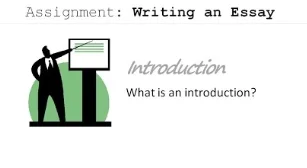How to Write Essays Faster in Exams: Tips to Pass Timed Essays

Writing timed exam essays can be challenging for many students because it is often difficult to produce high-quality work within a short time.
However, this should not worry you because this article will lay down the tips to write essays faster in addition to giving you the best methods of managing time during timed essays and ways of studying for essay exams.
People Also Read: How to Replace I in Essays: Alternative 3rd Person Pronouns
How to Write Essays Faster in Exams

1. Understand the Question
When assigned a timed essay, take some time to read the essay prompt carefully. Ensure that you clearly understand the requirements before doing anything else.
It is very easy to go off-topic when you miss out on important details within the instructions. You may write the required essay length but still produce irrelevant content.
Therefore, it is imperative to take some time to read the prompt and understand the requirements carefully.
To ensure that you maintain focus on the topic as you write, you should highlight or underline key points.
2. Plan your Essay
Once you have understood the requirements of the essay, take some additional time, probably a few minutes, to plan before commencing the writing process.
Planning is very important when beginning the writing process because it gives you a roadmap of what you are going to present in your writing.
When planning, you should develop a brief outline that indicates the main points you will be addressing in each paragraph and their supporting arguments.
One of the benefits of an outline is to ensure that you remain organized throughout your essay. It also helps give your essay a logical flow whereby your points are well structured.
It will also make the writing process considerably faster.
3. Stick to the Structure
While planning your essay, ensure that your outline adheres to the standard structure of an introduction paragraph with a thesis statement as its last sentence, body paragraphs, and a conclusion paragraph.
By doing so, you will be giving your essay a clear framework that also helps maintain coherence. As such, the structure should also be reflected during the actual writing.
4. Use Concise Language
You do not have time to play around with words when writing essays during exams. You have very limited time to support your arguments adequately.
Because of this, you should use clear and concise language to avoid unnecessary wordiness.
You should focus on effectively expressing the strongest ideas without using unnecessary phrases or words.
Additionally, you should avoid using passive voice since it is wordier. Use active voice because it is clear, concise, and less wordy.
5. Write an Impactful Introduction

Start the essay with a strong and engaging introduction when you begin writing.
It should begin with a hook that catches your readers’ attention, followed by a brief overview of what will be discussed within the essay, and end with a thesis statement (main argument).
A good introduction sets the tone for the essay in addition to grabbing the readers’ attention.
6. Focus on Key Points
Once you have written the introduction paragraph, write the body paragraphs. Each body paragraph should contain an individual point with supporting arguments and evidence.
Avoid delving into unnecessary details because it may result in going off-topic. Stick to the main idea and move on to the next point, which will be contained in a different paragraph.
7. Use Transition Phrases
Always use transitional words and phrases between paragraphs. This creates a good flow between sentences and paragraphs.
Transitional words and phrases help connect your ideas to make your essay more coherent.
8. Provide Concise Explanations
Though supporting your points and arguments with evidence is good, be concise when explaining your points.
Stick to precise language and avoid wordy explanations that take your writing time.
9. Write a Succinct Conclusion
In the conclusion paragraph, restate the thesis statement and summarize the main points.
Produce a concise and impactful ending to reinforce your main argument. Avoid introducing new ideas within the conclusion.
10. Proofread and Edit well
Take a few minutes to proofread and edit your essay. While doing so, locate any grammatical errors, awkward sentences, and typos. Make quick edits without rewriting entire paragraphs.
People Also Read: How to Write a Double-Spaced Essay: Full Guide with Examples
Tips on how to Manage Time in Timed Essays
Read and Analyze the Prompt fast

Use the first few minutes to read and understand essay instructions.
Make sure that you identify the central topic and the key points that need to be addressed.
Plan your Essay before you Commence writing.
Take a few moments to brainstorm and create a brief essay outline for the essay.
Put down the main points for each paragraph. This gives you a clear structure that will save time while writing.
Set the Goals for each Section
Divide the time given for the essay based on the different sections, such as the introduction, body paragraphs, and conclusion. Set a specific time limit for each part.
Begin with a Strong and Concise Introduction
Start with a captivating introduction that is not only concise but also impactful. Do not spend unnecessary time on your introduction.
Focus on the Main Points
The body paragraphs should address particular arguments or points. Adhere to the main ideas and supporting evidence. Avoid excessive explanations or unnecessary tangents.
Use Time-saving Techniques
Some of the well-known time-saving techniques include the “rule of three”, whereby you present three supporting examples for each idea or argument.
This approach helps avoid spending too much time on one idea or argument.
Keep an eye on the Cloc.k
Keep checking the time regularly while writing a timed essay to determine the remaining time. If you know the remaining time, you can make adjustments or pace yourself.
Leave time for Proofreading.
When planning the time for the essay sections, leave a few minutes for editing and proofreading. Here you can correct any grammatical errors, typos, or inconsistencies.
How to Study for Essay Exams
1. Understand the Exam Format
When studying for essay exams, familiarize yourself with the requirements and format of the exam. Know the possible time limit and essay length.

2. Review the Course Material
Review the course material, such as textbooks, readings, lecture notes, and other resources your instructor gave. Identify the main themes, arguments, and concepts discussed throughout the course.
3. Organize your Material and Notes
Create an effectively organized system for your materials and notes that utilizes color coding, headings, and subheadings to highlight and categorize the most important information.
This helps locate the most relevant content when studying for essay exams.
4. Identify Potential Topics
Make a list of potential areas of focus or essay topics based on the course discussions and material. Look for emphasized topics, controversial issues, and recurring themes and prioritize them for study.
5. Review Sample Essay Questions
Review previous exam questions given by your instructor or sample essay questions. Take note of the questions’ structure, main points addressed, and expectations of responses. This will give you an idea of what to expect.
Finally, if you have more time to study for essay exams, you may practice: outlining and brainstorming, creating strong arguments from potential essay topics, and timed writing from those topics.
People Also Read: How to Write an English 102 Research Paper that Rocks
Timed Essay Examples (Topics)
1. Discuss the impact of social media on interpersonal communication
2. Analyze the causes and consequences of climate change
3. Examine the advantages and disadvantages of online education
4. Analyze the role of technology in shaping society
5. Discuss the impact of social media activism on social change
6. Discuss the role of government in addressing income inequality

Josh Jasen or JJ as we fondly call him, is a senior academic editor at Grade Bees in charge of the writing department. When not managing complex essays and academic writing tasks, Josh is busy advising students on how to pass assignments. In his spare time, he loves playing football or walking with his dog around the park.




